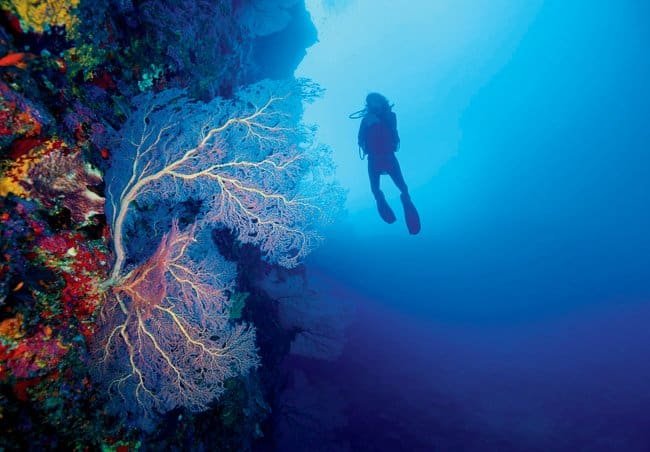Some of India’s best ocean treasures lie deep within the Andaman Sea. Andaman and Nicobar was named as one of the two “hope spots” by the International Union of Conservation of Nature (IUCN) an organization involved in the study of oceans. A hope spot is an area of ocean that merits special protection because of its wildlife and significant underwater habitats. Protecting Andaman marine life is a must today if we want to preserve it for the next generation to enjoy.
It is among the 31 hope spots among the world that can play a role in restoring the health of or our choking oceans.

Did you know that there are 96 wildlife sanctuaries, 9 national parks and one biosphere in these islands alone! That speaks volumes for 270 species and sub species of birds and over 300 species of fish found in the island and the seas. Not to mention the state animal – the Dugong – and some critically endangered species of turtles (leatherback, hawksbill, green and olive ridley turtles).

Coral reefs are living ecosystems — a mix of colonial animal, plant and mineral that hosts about 25% of known creatures in the ocean, despite covering only 0.02% of its surface. India is lucky to be a part of that 0.02. The rich and diverse coral reef in Andaman represents millions of years of growth and some of them could be among the oldest living communities in the world. The Indian government is backed by several international conservation organizations like WWF that regularly conduct surveys and checks on the reef’s health.
There needs to be effort on two fronts – curbing global warming and the world’s rising ocean temperatures which can wipe out entire reefs. This can only be done when people and governments are unified in a mission to reduce greenhouse gases.

The other more important thing to do is to protect Andaman marine life from ourselves. Here are a few things for starters
- Do not touch or break them when exploring the ocean. Living corals are not souvenirs. You can do with shell items available in the shop
- When shopping, always look for a ‘Sustainable’ tag with your purchase
- Join a local conservation group that educates people, especially students, on the importance of marine life conservation such as ReefWatch. Introducing people to the wonders of the ocean can help them realize its importance and rally to protect it.
- Eat less wild fish: Show your support to sustainable aquaculture fisheries and avoid eating any exotic varieties
Coral reefs are the future for bio-prospecting in the pharmaceutical industry, and are being studied to hold potential cures for Cancer, Alzheimer’s, Osteoporosis and other illnesses.
The ocean belongs to all of us. And yet we don’t own it. What we do own is the responsibility to hand down the heritage safely to the next generation. Let’s play our part to be responsible ocean citizens of one world.
Andaman has a lot of diverse activities to offer all age groups. Find out about them here.
Images: Original Wiki img




Comments are closed